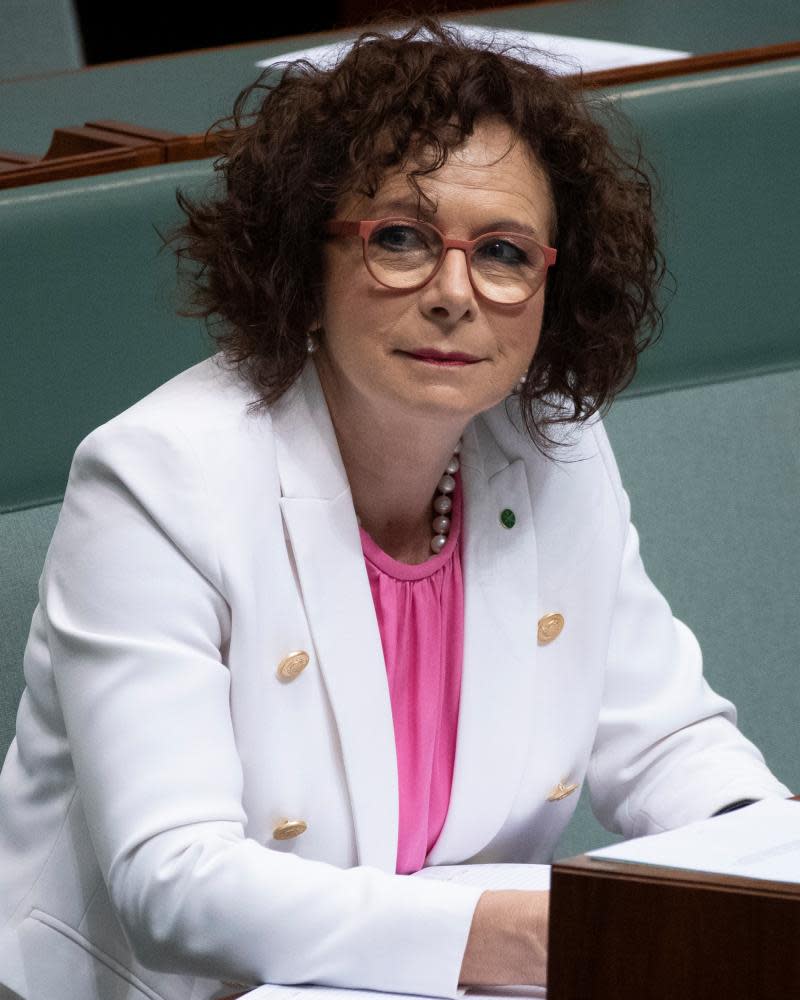Social media giants face $10m fines for privacy breaches under proposed government reform

Social media giants will face fines of up to $10m for serious privacy breaches, under reforms proposed by the Australian government.
The reforms would also require platforms to verify users’ ages, get parental consent for children and cease disclosing personal information, if requested.
They will include criminal penalties for repeated refusals to provide information requested by the Office of the Australian Information Commissioner.
On Monday the attorney general, Michaelia Cash, released draft legislation and a consultation paper arguing more needs to be done to protect children against “harmful tracking, profiling, or targeted marketing” on online platforms.
Separately, the Nationals MP Anne Webster has introduced a private member’s bill to parliament to make social media companies liable as publishers if they don’t take down allegedly defamatory material within 48 hours of receiving a notice from the eSafety commissioner.
Related: Scott Morrison backs Barnaby Joyce on social media crackdown as defamation changes mooted
The Coalition government committed to strengthening privacy protections online in March 2018 in the wake of the Cambridge Analytica scandal. That scandal centred on an alleged mass privacy breach involving the use of Australians’ Facebook data, for which the Australian privacy commissioner has taken Facebook to court.
The proposed legislation enables the creation of a binding online privacy code for social media services, data brokers and other large online platforms operating in Australia.
Under the code, social media platforms will be required to take all reasonable steps to verify their users’ age, and give primary consideration to the best interests of the child when handling children’s personal information. Platforms will need to obtain parental consent for users under the age of 16.
The code will require platforms to take reasonable steps not to use or disclose an individual’s personal information if requested by the user, which would give them the power to refuse their personal information being used for direct marketing.
The bill would remove the condition that an organisation has to collect or hold personal information from sources inside of Australia to be subject to privacy law – a move designed to ensure offshore social media companies are captured.
Cash said that “Australians are wary about what personal information they give over to large tech companies”.

“We are ensuring their data and privacy will be protected and handled with care,” she said in a statement. “Our draft legislations means that these companies will be punished heavily if they don’t meet that standard.”
Assistant minister for mental health, David Coleman, said social media was “part of the problem” of distress and mental health among young people, citing a “recent leak of Facebook’s own internal research demonstrates the impact social media platforms can have on body image”.
“That’s why this legislation is so important. It will provide families with powerful protections, and require fundamental changes to the way that social media platforms operate in Australia.”
Australia has proactively regulated social media companies with respect to cyberbullying, violent extremist material and revenue sharing with traditional media publishers.
Australia will revamp its defamation laws to deal with online defamation, after a high court decision that administrators of social media pages are liable for comments on their posts even before they are aware of the comments.
The prime minister, Scott Morrison, has foreshadowed the government will pursue further changes requiring platforms to unmask anonymous social media users in a bid to crackdown on misinformation.
Webster’s bill would give the communications minister power to “make determinations about the basic expectations of a social media service”, according to its explanatory memorandum.
Related: Facebook rolls out campaign to fight misinformation before Australian election
The eSafety commissioner can then demand social media companies report on how they’re meeting the expectations or publish their own conclusions about contraventions.
The bill would also create a process for members of the public to complain to the eSafety commissioner about defamatory material on social media platforms.
If the eSafety commissioner agrees it is “reasonably likely” that the material defames the complainant, they can issue a defamation notice to a service provider, making liable for the material if they don’t remove it within 48 hours.
Webster has been at the forefront of efforts to hold social media giants liable as publishers after successful defamation proceedings against a conspiracy theorist who used Facebook to call her “a member of a secretive paedophile network”.

 Yahoo Movies
Yahoo Movies 
